Figure shows an indicator diagram. During path 1-2-3, 100 cal is given to the system and 40 cal worth work is done. During pat 1-2-3, the work done is 10 cal . Then
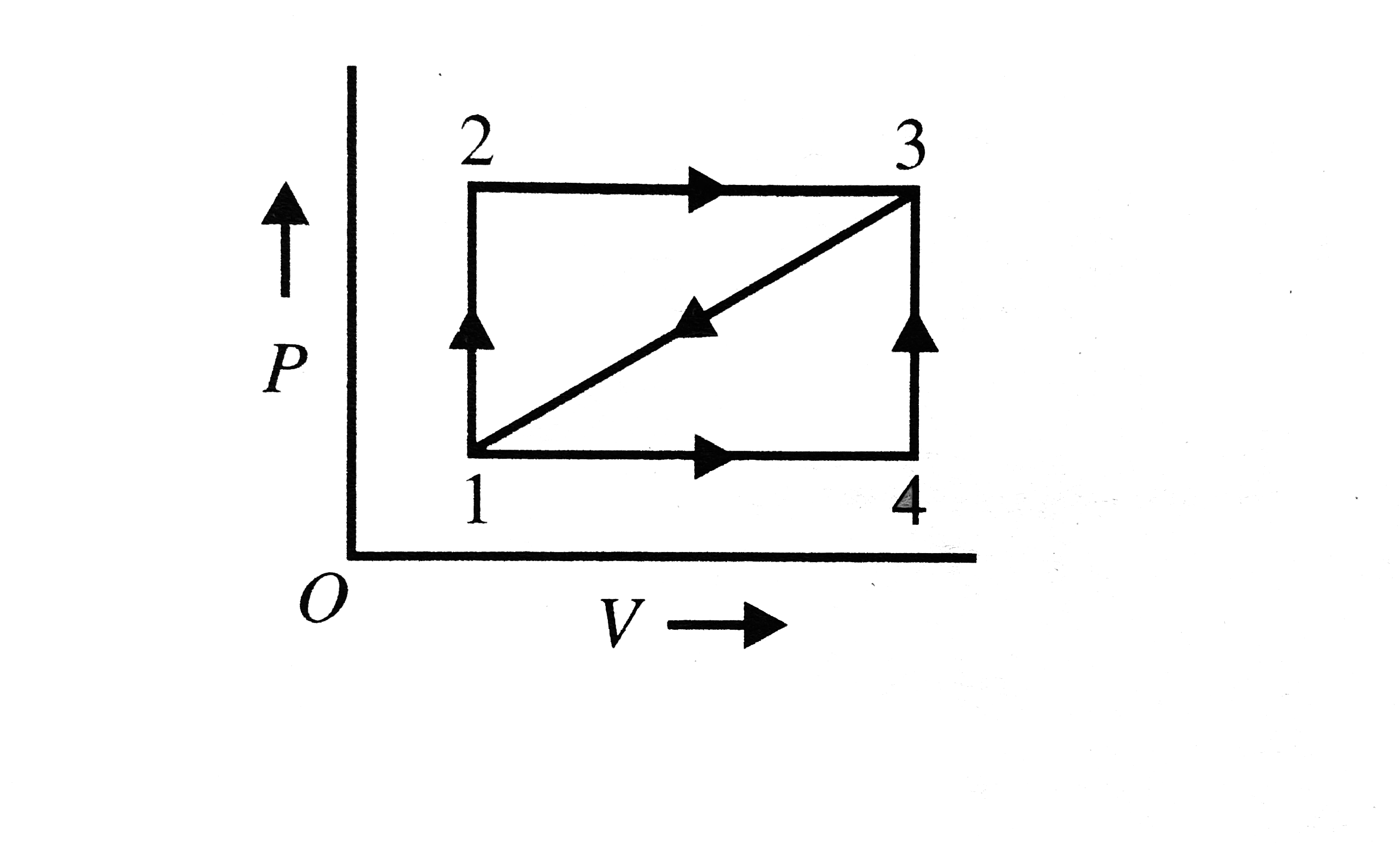
heat given to the system during path 1-2-3 is 70 cal
if the systems is brought from 3 to 1 along straight line path 3-1, work done is worth 25 cal
along straight line path 3-1, the heat ejected by the system is 85J
the internal energy of the system in state 3 is 140 cal above that in state 1
The correct Answer is:A, B, C
The critical step is that work in path 1−3 is mean of that for 1−2−3 and 1−4−3( considering areas )
For (a) 100−40=x−10
or , x=70cal
For (b) , It is also correct as half of (40+10) is 25 cal
For (c),dU is −60, work −25
So −60=dQ−(−25)
or dQ=−85cal
For (d) dU=100−40=60cal
Hence, option (d) is not correct.
Topper's Solved these Questions
- KINETIC THEORY OF GASES AND FIRST LAW OF THERMODYNAMICSBOOK - CENGAGE PHYSICSCHAPTER - KINETIC THEORY OF GASES AND FIRST LAW OF THERMODYNAMICSEXERCISE - Assertion-Reasoning
6 Videos
- KINETIC THEORY OF GASES AND FIRST LAW OF THERMODYNAMICSBOOK - CENGAGE PHYSICSCHAPTER - KINETIC THEORY OF GASES AND FIRST LAW OF THERMODYNAMICSEXERCISE - Comprehension
56 Videos
- KINETIC THEORY OF GASES AND FIRST LAW OF THERMODYNAMICSBOOK - CENGAGE PHYSICSCHAPTER - KINETIC THEORY OF GASES AND FIRST LAW OF THERMODYNAMICSEXERCISE - Single Correct
140 Videos
- KINETIC THEORY OF GASESBOOK - CENGAGE PHYSICSCHAPTER - KINETIC THEORY OF GASESEXERCISE - Compression
2 Videos
- LINEAR AND ANGULAR SIMPLE HARMONIC MOTIONBOOK - CENGAGE PHYSICSCHAPTER - LINEAR AND ANGULAR SIMPLE HARMONIC MOTIONEXERCISE - Multiple Correct Answer Type
9 Videos
Similar Questions
In given figure, when a thermodynamic system is taken from state A to state B via path ACB, 100 cal of heat given to the system and 60 cal work is done by the gas. Along the path ADB, the work done by the gas is 20 cal. Find the heat following into the system in this case ?
View SolutionIn given figure, when a thermodynamic system is taken from state A to state B via path ACB,100 cal of heat given to the system and 60cal work is done by the gas. Along the path ADB, the work done by the gas is 20cal. Find the heat flowing into the system in this case?
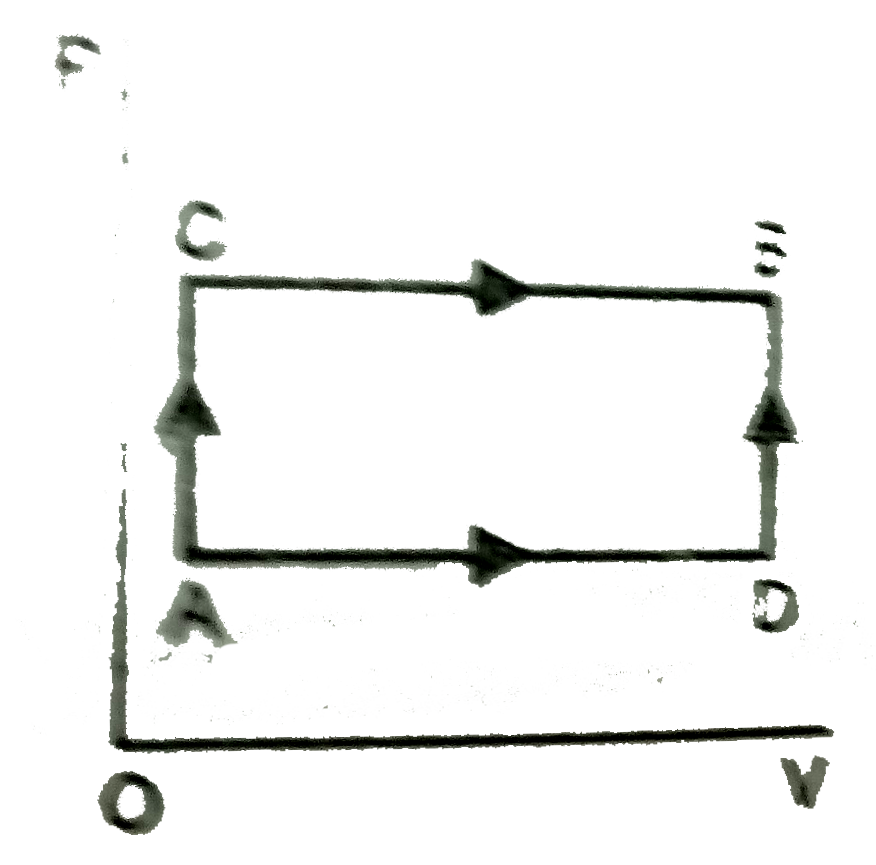
View Solution
Knowledge Check
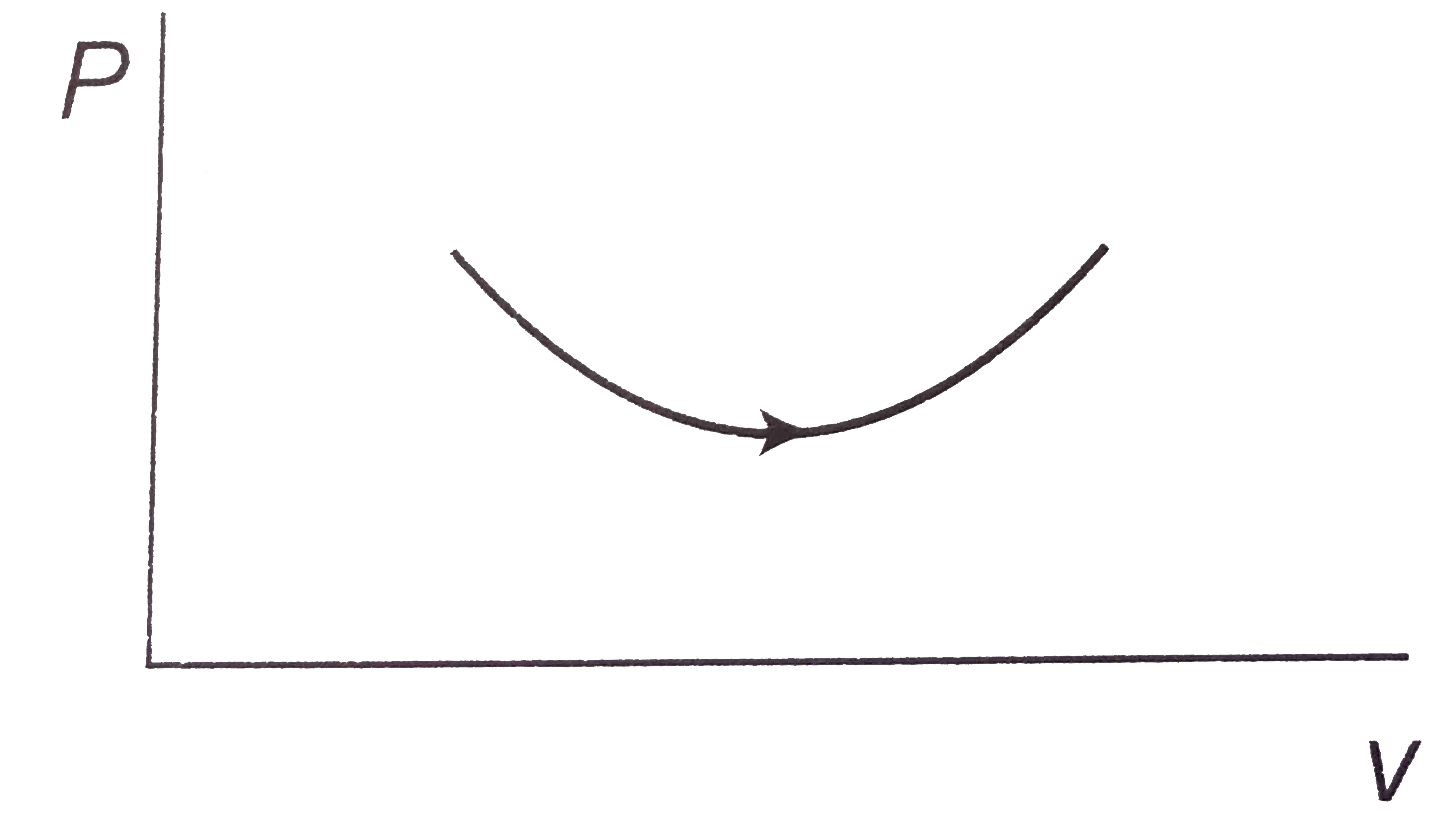
Consider the process on a system shown in figure. During the process, the work done by the systemAcontinuously increasesBcontinuously decreasesCfirst increases then decreasesDfirst decrease then increasesA system goes from A to B by two different paths in the P-V diagram as shown in figure Heat given to the system in path 1 is 1100 j, the work done by the system along path 1 is more than path 2 by 150 J. The heat exchanged by the system in path 2 is
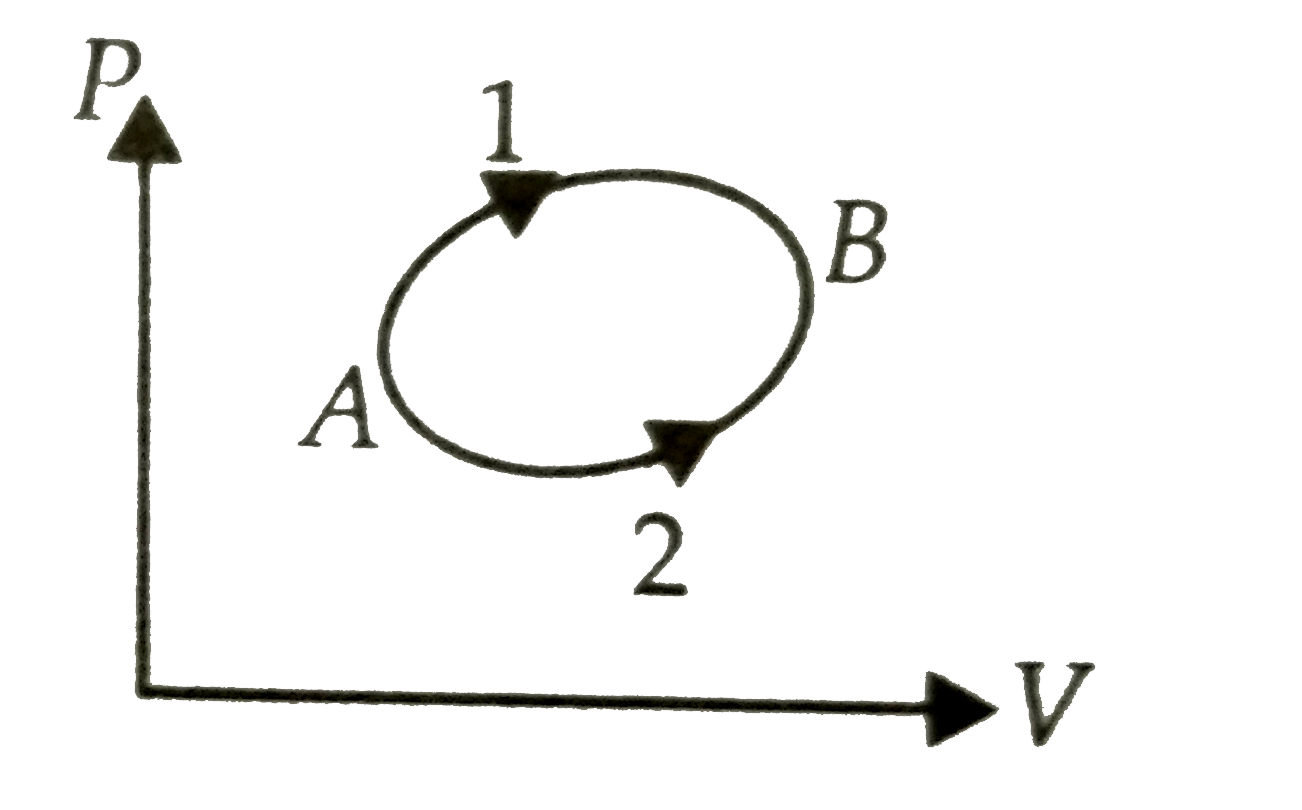 A800 JB750 JC1050 JD950 J
A800 JB750 JC1050 JD950 JA system goes from P to Q by two different paths in the P-V diagram as shown in figure. Heat given to the system in path 1 is 1100 J, the work done by the system along path 1 is more than path 2 by 150 J. The heat exchanged by the system in path 2 is
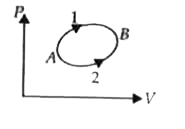 A800 JB750 JC1050 JD950 J
A800 JB750 JC1050 JD950 J
When a system is taken from state A to state B along the path ACB, 80 k cal of heat flows into the system and 30 k cal of work is done.
How much heat flows into the system along path ADB if the work done is 10 k cal ?
When the system is returned from B to A along the curved path the work done is 20 k cal. Does the system absorb or liberate heat.
View SolutionWhen a system is taken from state A to state B along the path ACB, 80 k cal of heat flows into the system and 30 k cal of work is done.
How much heat flows into the system along path ADB if the work done is 10 k cal ?
View SolutionWhen a system is taken from state A to state B along the path ACB, 80 k cal of heat flows into the system and 30 k cal of work is done.
If UA=0andUD=40 k cal, find the heat absorbed in the process AD
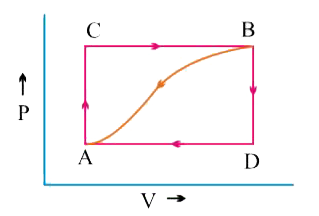
View SolutionA system goes from P to Q by two different paths in the p−V diagram as shown in figure. Heat given to the system in path 1 is 1000 J. The work done by the system along path 1 is more than path 2 by 100 J. What is the heat exchanged by the system in path 2 ?
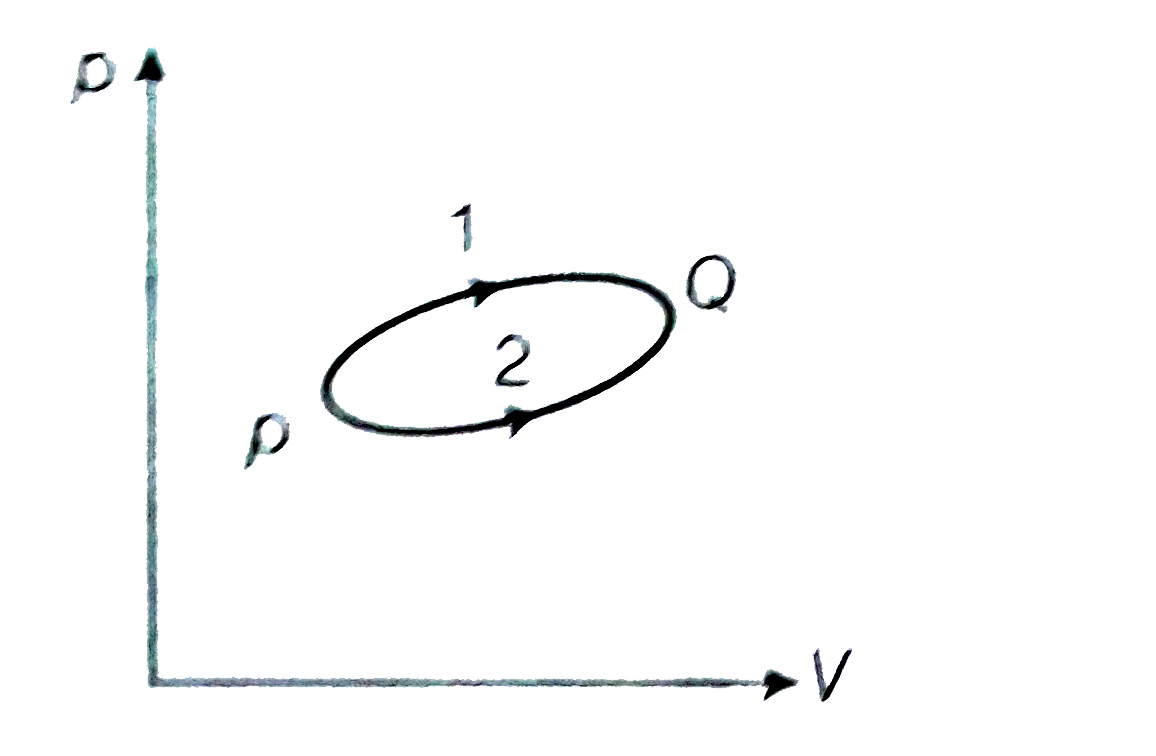
View SolutionA system is taken from state A to B through three different paths 1,2 and 3. The work done is maximum is :
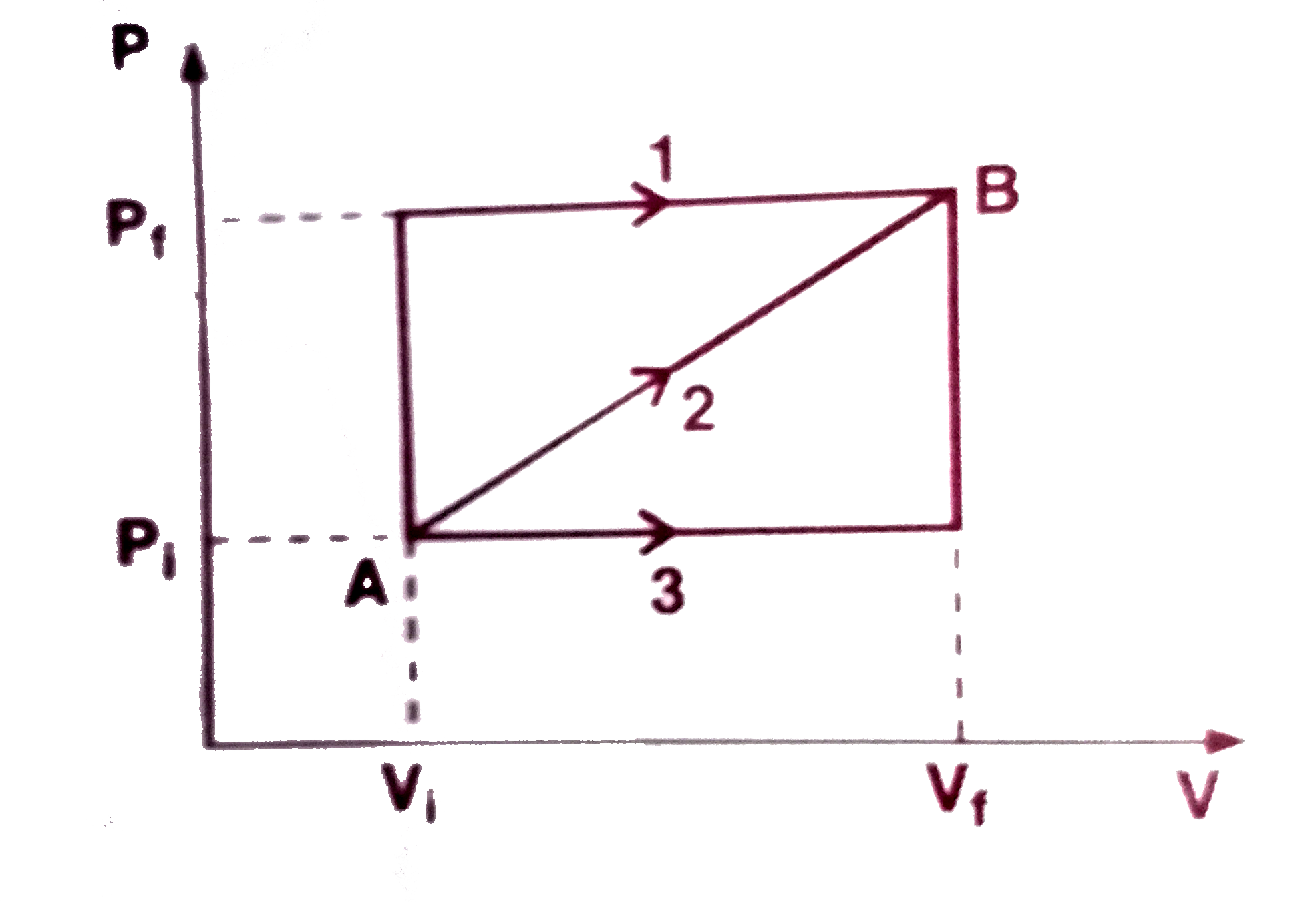
View Solution
